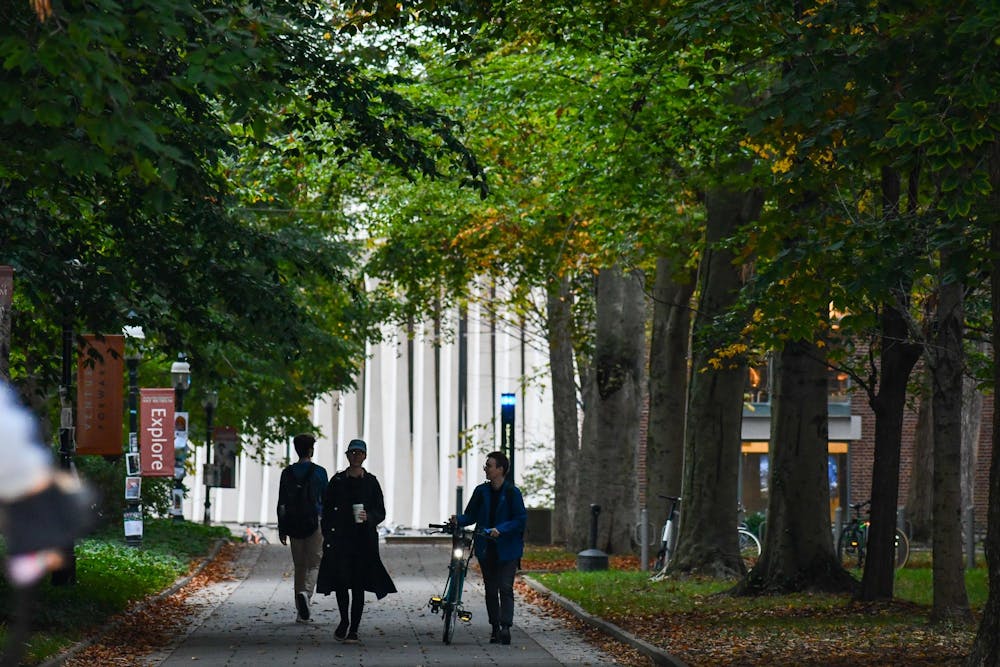Although students often discuss prioritizing mental health care at Princeton, they may not know that doing so currently is almost impossible. The gap between potential demand for counseling or therapy and the number of staff available to students is far too wide to make mental health care effective. According to the 2022 Senior Survey, “Just under 60 percent of respondents have pursued mental health counseling or therapy, while 75 percent have considered it.” In comparison, the University’s Counseling and Psychological Services (CPS) currently has a staff of 27 social workers, psychologists, and counselors on staff. These accommodations are vastly unsuitable for the student body, which consisted of 5,540 undergraduates and 3,238 graduate students in the 2022–23 school year.
As it stands, there is one clinician for every 330 students on-campus. Furthermore, the student body at Princeton is expanding each year, and class sizes have already grown by 250 in the last two years and is set to do the same in the next two years, reducing the current rate to one clinician for every 350 students. Given that as many as 75 percent of Princeton undergraduates considered counseling in 2022, this would leave only one clinician for every 154 undergraduates considering mental health care. And if the statistics track similarly for graduate students, then that would leave one clinician for every 244 Princeton students who might want it. This is clearly an unsustainable model for mental health care at this University. Without a more-than-proportional increase in the counseling staff employed at CPS, students’ mental health care needs will continue to be unaddressed at Princeton.
CPS’ understaffing can have severe consequences for students in need of urgent mental health care treatment. For example, it can take a few days to receive an initial 20-minute consultation and about a week on average to schedule the first following intake. This is inadequate, because mental illness can become severe or even lethal quickly, and the University’s mental health crisis is acute and severe. Once a student is able to meet with CPS, they likely won’t be able to use the service for long-term care, because they're encouraged to not go beyond six appointments with clinicians in the office. At that point, students will be referred to a local therapist who will cost the student out-of-pocket, even on the student health plan. Students should not have to deal with these problems. They should be able to receive appropriate counseling and treatment services quickly and without additional cost, which expanding CPS staff would help address.
Although there is currently an emergency fund for instances such as these, it is still limited and likely will not be able to cover long-term care for students in need. Specifically, the most affordable long-term therapy (outside of CPS) through the University’s healthcare plan has a $20 copay per session. The current emergency fund only allots students $300 a year in aid before they have to take out loans. This means that, to avoid paying out of pocket, students would have to limit their appointments to about once every two weeks, even though data indicate that one session a week or more yields statistically significant differences in improvements of mental health compared to biweekly sessions. Taking the evidence in favor of an increased number of sessions into account, many students, especially low-income students, would be forced to weigh the cost of treating their mental health with maintaining other aspects of their livelihood. An extra few hundred dollars per year in mental health care costs is a significant expense. This is a problem that the University cannot leave unattended. But the solution again is clear: Fixing CPS’ staffing shortage would allow for students to both make more CPS appointments and not have to rely on outside and expensive treatment.
Of course, expanding the CPS staff requires a careful approach. In particular, there should be an emphasis on hiring a more diverse group of staff, since there have been criticisms about the lack of diversity within the clinician pool in CPS. Currently, the majority of CPS clinicians are white. This should change, so that the profile of CPS staff more closely mirrors that of the University’s increasingly diverse student population. This is necessary, too, because those who are people of color (POC) face unique problems and struggles, both in mental health and subsequent treatment, or lack thereof. For example, the implicit bias of non-POC clinicians can harm the mental health care they provide POC patients. These problems may be worsened at a predominantly white institution like Princeton, which has the third-highest proportion of white students and a diversity score below several other universities within the Ivy League. Studies, however, have demonstrated that POC’s struggles in mental health are often best related to when POC patients are treated by POC clinicians. To adequately serve POC students, then, the CPS staff itself must not only grow, it must also further diversify.
The University, to its credit, has made strides in providing mental health care to its students, particularly through the CPS Cares Line, which allows students to reach a counselor digitally anytime during the year. This, however, is not an absolute solution to the mental health treatment problems that continue to fester within the University. For many, speaking with a counselor face-to-face in a time of hardship is vastly different from speaking to someone over the phone, which can be a great solution for some, but not all. In that vein, bringing down the wait times in initial mental health consultations through CPS, making long-term mental health care more financially feasible, and increasing diversity in CPS staff should be top priorities of the University. Expanding CPS’ staff would be a good start at achieving all of those priorities.
Davis Hobley is a member of the Class of 2027 and intends to major in neuroscience. He hails from Rochester, Michigan and is reachable through his email (dh2172@princeton.edu) and personal Instagram (@davis_20.23).





